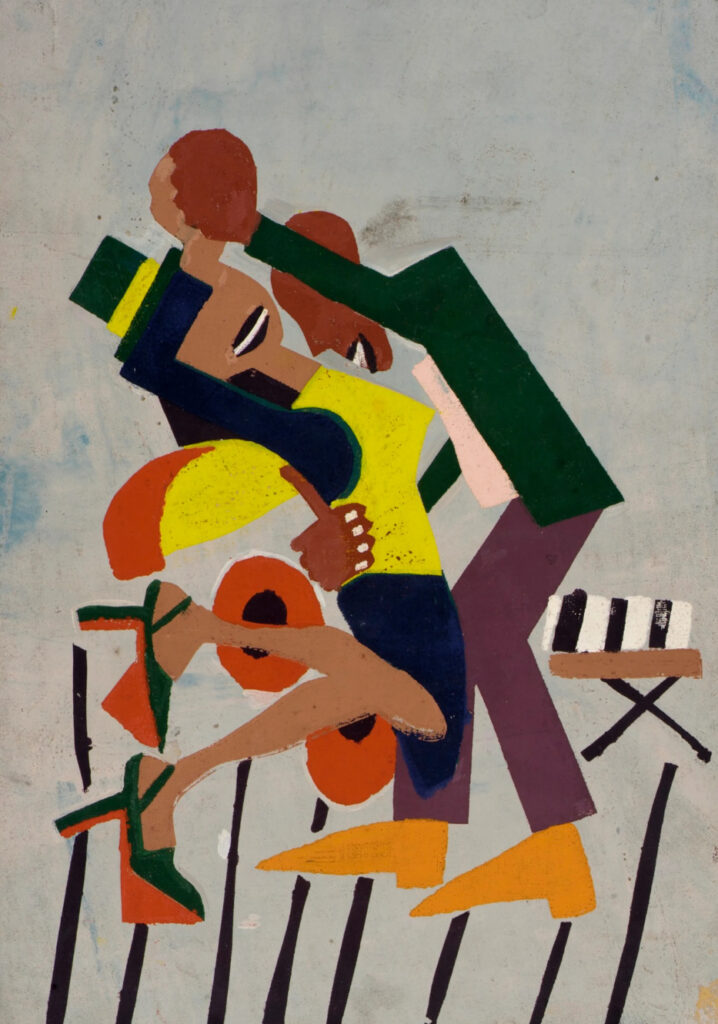“The Blues Idiom at Church,” by Alan Jacobs in Comment.

So the first element of Cosmos Murray is his claim that American culture is “incontestably mulatto.” The second is this: that the primary and central response of black Americans to the denial of their rights, the denial of their status as Americans, has been the development of what Murray calls “the blues idiom.” And the blues idiom holds the key to the importance of Cosmos Murray for me and my fellow Christians.
The blues idiom begins with the recognition that—Murray uses many variations on this phrase—“life itself is such a low-down dirty shame.” But it doesn’t end there. What matters is how one responds.
“All Alone, After God,” Paul Frank Spencer reviews Regina Spektor in Mere Orthodoxy.

Lament is difficult to do corporately. The publicity of it tends to belie sincerity, or at least, to undercut it. If not precipitated organically from some horrible regional or global event, lament usually feels most true when expressed by one family, a few individuals, or even only a single person.
And so I do not believe it is the church’s fault that we struggle to incorporate lament well into our rhythms of worship. In congregations that keep with the liturgical year, that which may be truly experienced by a few is likely one more rote repetition for the majority. In low-church contexts, we may have given up attempts at communal lament altogether.
Perhaps public mourning was always so. Sackcloth and ashes; fasting and dirges: have these ever inspired or reflected true emotion in the hearts of the broader community? I am no sociologist, nor a historian, and I cannot claim to know the hearts of my contemporaries, let alone those of ages past. But from my perspective, the one place I can reliably find genuine grief is in art, old and new. This is one way humans have been able to make our distress public in all sincerity.
“Jesus as Political Cynic,” Peter Leithart interacting with David Lloyd Dusenbury’s I Judge No One in First Things

Jesus was as hard-headed about economics as about politics. Because Mammon is a powerful and ever-present idol, Jesus posed the stark choice: You cannot serve God and Mammon. As he sat in the temple treasury watching pious worshippers leaving their offerings, Jesus condemned scribes who “devour widows’ houses” while luxuriating in long robes, accepting prominent seats at banquets, and saying long prayers to bolster their reputation. He was driven to his one act of zealous fury because the temple authorities had turned his Father’s house into a house of commerce. The priests paid Judas thirty pieces of silver to betray Jesus, and the blood-stained coins wend their way through Matthew’s passion narrative. “In contriving the death of Jesus,” Dusenbury remarks, “Commerce is served.”
“I’m What’s Wrong With the Humanities,” by Ross Douthat in The New York Times
In the responses to a recent death-of-the-humanities dirge, a long reported piece by Nathan Heller for The New Yorker on the decline of the English major, you could see an illustration of its thesis: The story’s most depressing anecdotes were plucked out and swapped around on social media by people who probably did not even begin to make their way through the lengthy text itself.
One passage in particular appeared and reappeared for days in my Twitter feed. It featured Amanda Claybaugh, Harvard’s dean of undergraduate education and a professor in the English department. She was one of several academics who described, in Heller’s phrase, an “orientation toward the present” among contemporary college students so powerful that they “lost their bearings in the past.”
“The last time I taught ‘The Scarlet Letter,’” she told him, “I discovered that my students were really struggling to understand the sentences as sentences — like, having trouble identifying the subject and the verb … Their capacities are different, and the 19th century is a long time ago.”
Like all the others who managed to make their way through Nathaniel Hawthorne in high school, I read this with a mix of smugness and horror. Then, naturally, I scrolled to the next declinist indicator, the next sign of the cultural apocalypse.
What I did not do was click through and read the whole Heller piece (though I have read it now, I swear it!). Even more conspicuously, I definitely did not go pick up a copy of “The Scarlet Letter” or any other 19th-century novel and begin reading it for pleasure.




